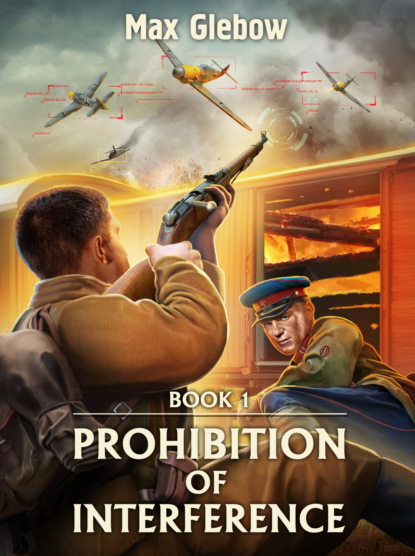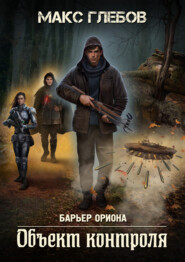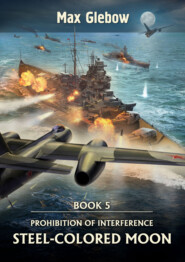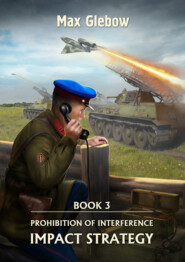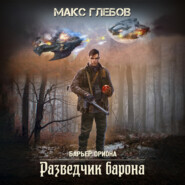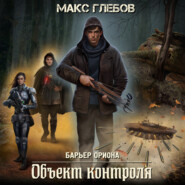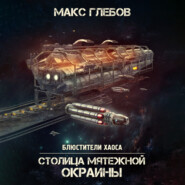По всем вопросам обращайтесь на: info@litportal.ru
(©) 2003-2024.
✖
Prohibition of Interference. Book 1
Настройки чтения
Размер шрифта
Высота строк
Поля
This breakthrough allowed us to escape to the stars, not by single research ships, but en masse, using colonial transports equipped with hyperdrives. The discovery of hypertransition with the then amount of technology and fundamental knowledge could be called a frank miracle, but we were lucky, and deep space gave people purpose and work for decades to come. We had already decided that the worst was over when the Revolt broke out… This insurrection, terrible and irrational, struck several of the largest colonies at once, and then spread to the Metropolis. At that time I was already serving on the lunar base, and because of the strict military censorship I did not know any details except those that were communicated to us by the leadership. A month before the base was killed, a support transport flew in and unloaded a self-deploying anti-space defense system. The batteries dipped into the lunar soil and went on alert, and the transport went back and took my Letra with it. No one else from the central worlds came to us until the rebel cruiser showed up.
Colonel Niven obviously knew something about what was going on in the Metropolis and the colonies, but he wouldn't tell me, even before he died, or maybe he just didn't have time. But I drew a simple but disappointing conclusion – by breaking out into space, we only delayed the death of our civilization, and now it has hit us.
Letra said that we study primitive civilizations to see where the error that leads to self-destruction is. That's why there was a ban on interference – for the purity of the experiment, so to speak. And now here I am, and the ban has been lifted. But what to do, I do not know, or rather, I know exactly what not to do. I will not go to the authorities with my technology and knowledge. If I want to change something and live here happily ever after, and then leave this world to my children and their children's children, I myself must become the power, and take that power non-violently, at least in this country. I buried my hope that someone would come for me from the Metropolis almost immediately. Something in Colonel Niven's voice told me it was foolish to count on that. Well, let's save this world from itself, and at the same time save myself, because I really expect to live here all the 150 years that nature has given me.
I was thinking about global things, but in the meantime, I had to solve current problems.
“Comrade Sergeant, there's a road a kilometer and a half ahead. I can hear the sound of engines,” I reported to the commander.
“Could it be our troops?” Boris, who was walking on the right, asked.
Pluzhnikov immediately reacted to the insubordination:
“Red Army man Chezhin, if you open your mouth again without an order and not for a report, you hand the rifle to Sintsov. Understood?”
“I got it, Comrade Sergeant,” Boris grimaced, “it won't happen again.” But he kept looking at me, waiting hopefully for an answer to his question.
“Squad, halt!” Pluzhnikov softly ordered and signaled Sintsov, who was walking ahead, to stop, “Everybody keep quiet. Listen carefully, Nagulin.”
I closed my eyes.
“The column is going, Comrade Sergeant. Trucks and infantry. The engines are not ours – they are Germans, and there are a lot of them. I hear at least five cars at the same time.”
“Well, trucks I see,” said the Sergeant thoughtfully, “though I don't hear anything at all. But last time you said everything right about the motorcycles, so I guess you heard right here, too. But how could you hear the infantry?”
“The weapons are tinkling. And that sound is spread out over a wide front. It's a big column. At least two companies, I think.”
“So,” the Sergeant thought for a few seconds, “Chezhin, Sharkov, catch up with Sintsov and stay where you are. Take cover in the bushes and don't make a sound!”
“Copu that!” answered the Red Army men softly.
“Nagulin, follow me!”
When we moved a hundred meters away from the road, Pluzhnikov said quietly, “You wanted to ask me something, Nagulin. Now would be a good time to ask.”
I sighed.
“Comrade Sergeant, why did Senior Lieutenant Fyodorov raise his men to counterattack? Well, it was obvious it wasn't going to work out.”
Pluzhnikov nodded. He had obviously been waiting for this question and had prepared an answer in advance.
“This is a war, Nagulin. It is a brutal war, with its own rules, not invented by us, and not for us to change. The Army Regulations require a Red Army man to lead an offensive battle. It says that if the enemy imposes war on us, the Workers and Peasants' Red Army will be the most attacking army ever. And the offensive battle consists in the decisive movement of the entire battle order forward and is conducted by suppressing the enemy with all the power of fire, attacking his battle order with all the forces. That's how Comrade Senior Lieutenant Fyodorov acted. And you, fighter, do you think he should have run away?”
“An organized retreat in the face of superior enemy forces is not running away, Comrade Sergeant,” I objected, “Fleeing is abandoning a position contrary to an order from a superior commander, and did Comrade Fyodorov have orders to defend that railroad embankment to the last man? Or maybe he had orders to attack the German company column that came out from behind the woods? No! His orders were completely different. Comrade First Lieutenant had to deliver the men entrusted to him to the assembly point in Uman, where representatives of the units that had suffered losses in the battles with the enemy were already waiting for them.
That was the order, in my opinion, that should have been followed, considering all the circumstances, including the wounded we had on our hands and the lack of weapons in most of the detachment. Everything I proposed before and during the battle was aimed precisely at saving men and carrying out the orders of the command. And what happened? You saw it yourself, Comrade Sergeant.”
Pluzhnikov gritted his teeth, but remained silent. Apparently, he did not consider today's fight from that point of view. Taking advantage of the pause, I continued.
“And as for the field manual, it doesn't just provide for an offensive combat. The 14th article states that defenses are to be used whenever defeating the enemy by offensive is impossible or impracticable in the circumstances. And the 22nd article explicitly states that every case in war is unique and requires a special solution, so in combat you must always act in strict accordance with the situation. In our case, when there is no goal of holding a specific line and the enemy has overwhelming superiority of forces, the manual prescribes actions such as mobile defense, withdrawal from combat, and retreat. All of this is described in Articles 417 through 422. Didn't Comrade First Lieutenant know all this? I don't believe it!”
Listening to me, the Sergeant grew darker and darker, and after I finished, he was silent for another 30 seconds.
“Here's the thing, Red Army man Nagulin,” Pluzhnikov finally answered, “First Lieutenant Fyodorov was my commander, and he died in combat for our homeland, honestly doing his duty. Like any man, he may have made mistakes, but he atoned for them in his death. Let's just say I didn't hear everything you just said to me. I am in the NKVD, in case you have forgotten, and if you were any other Red Army man from our unit, I would have you arrested for attempting to undermine the morale of the unit's men and for defeatist sentiments. But I saw how you behaved in battle. You're an excellent shot, not a coward, not a fool, and certainly not a German collaborator. But you're being silly, and I can't understand why.”
Colonel Niven obviously knew something about what was going on in the Metropolis and the colonies, but he wouldn't tell me, even before he died, or maybe he just didn't have time. But I drew a simple but disappointing conclusion – by breaking out into space, we only delayed the death of our civilization, and now it has hit us.
Letra said that we study primitive civilizations to see where the error that leads to self-destruction is. That's why there was a ban on interference – for the purity of the experiment, so to speak. And now here I am, and the ban has been lifted. But what to do, I do not know, or rather, I know exactly what not to do. I will not go to the authorities with my technology and knowledge. If I want to change something and live here happily ever after, and then leave this world to my children and their children's children, I myself must become the power, and take that power non-violently, at least in this country. I buried my hope that someone would come for me from the Metropolis almost immediately. Something in Colonel Niven's voice told me it was foolish to count on that. Well, let's save this world from itself, and at the same time save myself, because I really expect to live here all the 150 years that nature has given me.
I was thinking about global things, but in the meantime, I had to solve current problems.
“Comrade Sergeant, there's a road a kilometer and a half ahead. I can hear the sound of engines,” I reported to the commander.
“Could it be our troops?” Boris, who was walking on the right, asked.
Pluzhnikov immediately reacted to the insubordination:
“Red Army man Chezhin, if you open your mouth again without an order and not for a report, you hand the rifle to Sintsov. Understood?”
“I got it, Comrade Sergeant,” Boris grimaced, “it won't happen again.” But he kept looking at me, waiting hopefully for an answer to his question.
“Squad, halt!” Pluzhnikov softly ordered and signaled Sintsov, who was walking ahead, to stop, “Everybody keep quiet. Listen carefully, Nagulin.”
I closed my eyes.
“The column is going, Comrade Sergeant. Trucks and infantry. The engines are not ours – they are Germans, and there are a lot of them. I hear at least five cars at the same time.”
“Well, trucks I see,” said the Sergeant thoughtfully, “though I don't hear anything at all. But last time you said everything right about the motorcycles, so I guess you heard right here, too. But how could you hear the infantry?”
“The weapons are tinkling. And that sound is spread out over a wide front. It's a big column. At least two companies, I think.”
“So,” the Sergeant thought for a few seconds, “Chezhin, Sharkov, catch up with Sintsov and stay where you are. Take cover in the bushes and don't make a sound!”
“Copu that!” answered the Red Army men softly.
“Nagulin, follow me!”
When we moved a hundred meters away from the road, Pluzhnikov said quietly, “You wanted to ask me something, Nagulin. Now would be a good time to ask.”
I sighed.
“Comrade Sergeant, why did Senior Lieutenant Fyodorov raise his men to counterattack? Well, it was obvious it wasn't going to work out.”
Pluzhnikov nodded. He had obviously been waiting for this question and had prepared an answer in advance.
“This is a war, Nagulin. It is a brutal war, with its own rules, not invented by us, and not for us to change. The Army Regulations require a Red Army man to lead an offensive battle. It says that if the enemy imposes war on us, the Workers and Peasants' Red Army will be the most attacking army ever. And the offensive battle consists in the decisive movement of the entire battle order forward and is conducted by suppressing the enemy with all the power of fire, attacking his battle order with all the forces. That's how Comrade Senior Lieutenant Fyodorov acted. And you, fighter, do you think he should have run away?”
“An organized retreat in the face of superior enemy forces is not running away, Comrade Sergeant,” I objected, “Fleeing is abandoning a position contrary to an order from a superior commander, and did Comrade Fyodorov have orders to defend that railroad embankment to the last man? Or maybe he had orders to attack the German company column that came out from behind the woods? No! His orders were completely different. Comrade First Lieutenant had to deliver the men entrusted to him to the assembly point in Uman, where representatives of the units that had suffered losses in the battles with the enemy were already waiting for them.
That was the order, in my opinion, that should have been followed, considering all the circumstances, including the wounded we had on our hands and the lack of weapons in most of the detachment. Everything I proposed before and during the battle was aimed precisely at saving men and carrying out the orders of the command. And what happened? You saw it yourself, Comrade Sergeant.”
Pluzhnikov gritted his teeth, but remained silent. Apparently, he did not consider today's fight from that point of view. Taking advantage of the pause, I continued.
“And as for the field manual, it doesn't just provide for an offensive combat. The 14th article states that defenses are to be used whenever defeating the enemy by offensive is impossible or impracticable in the circumstances. And the 22nd article explicitly states that every case in war is unique and requires a special solution, so in combat you must always act in strict accordance with the situation. In our case, when there is no goal of holding a specific line and the enemy has overwhelming superiority of forces, the manual prescribes actions such as mobile defense, withdrawal from combat, and retreat. All of this is described in Articles 417 through 422. Didn't Comrade First Lieutenant know all this? I don't believe it!”
Listening to me, the Sergeant grew darker and darker, and after I finished, he was silent for another 30 seconds.
“Here's the thing, Red Army man Nagulin,” Pluzhnikov finally answered, “First Lieutenant Fyodorov was my commander, and he died in combat for our homeland, honestly doing his duty. Like any man, he may have made mistakes, but he atoned for them in his death. Let's just say I didn't hear everything you just said to me. I am in the NKVD, in case you have forgotten, and if you were any other Red Army man from our unit, I would have you arrested for attempting to undermine the morale of the unit's men and for defeatist sentiments. But I saw how you behaved in battle. You're an excellent shot, not a coward, not a fool, and certainly not a German collaborator. But you're being silly, and I can't understand why.”
Вы ознакомились с фрагментом книги.
Приобретайте полный текст книги у нашего партнера:
Приобретайте полный текст книги у нашего партнера:





